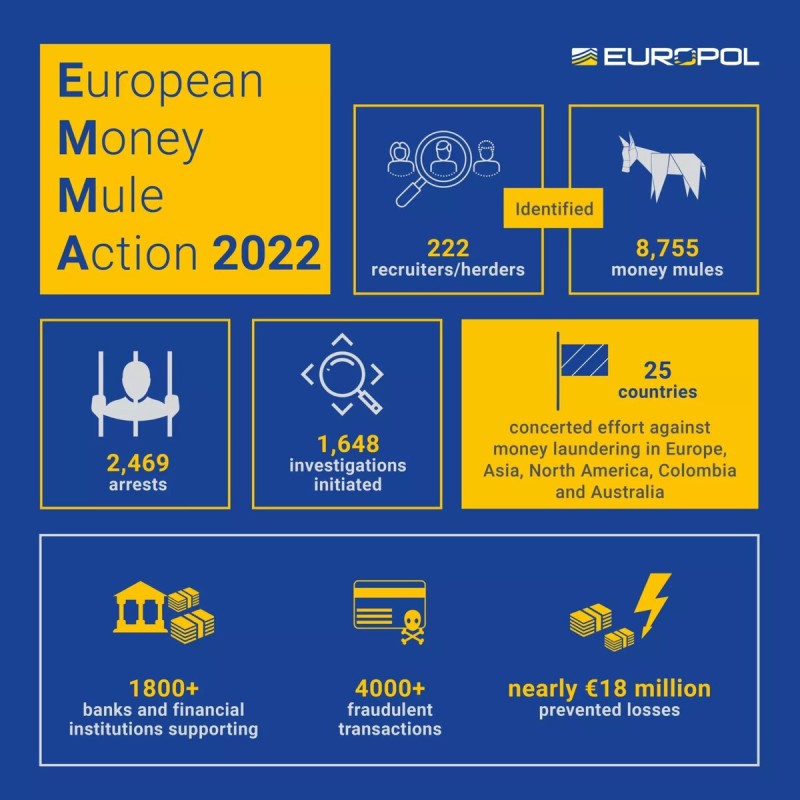According to law enforcement, money mules are people who help launder illegal money and move it around, either by physically carrying it from place to place or allowing it to be transferred through their bank accounts for a commission.
From mid-September through the end of November, 8,755 money mules were detected, along with 222 money mule recruiters, while a total of 2,469 people were arrested internationally, Europol said in a statement Monday.
Europol, Eurojust, Interpol, and the European Banking Federation (EBF) all backed the operation – European Money Mule Action (EMMA), which took place in nations as widely apart as Colombia, Singapore, and Australia.
The operation also resulted in the launch of 1,648 criminal investigations and the identification of 4,089 fraudulent transactions, according to Europol. In some cases, the mules may not be aware they are committing a felony, while others are fully complicit, investigators say.
According to a 2016 analysis by Europol, Eurojust, and others, more than 90 percent of money-mule transactions are related to cybercrime, with the mules transferring the proceeds from their jurisdiction to the criminal’s home country.
“The illegally obtained money often comes from phishing, malware attacks, online shopping/e-commerce fraud, payment card fraud, and sophisticated online fraud,” according to Europol.
The agency also said that this year, with the continued cooperation of the EBF, about 1,800 banks and financial institutions, as well as online money transfer services, cryptocurrency exchanges, Fintech and KYC firms, and international computer technology corporations, assisted law enforcement tackle the money muling.
“The issue may seem trivial, yet the amount of criminal money being laundered through this method is not. Money mules are a significant part of the money laundering landscape, enabling criminals to swiftly move funds across a network of accounts, often in different countries,” warned Europol.
That’s why it has launched the #DontBeaMule campaign with its international partners, the EBF and financial institutions, to raise awareness about money muling and its criminal implication.
The campaign, which is available in 26 languages, will educate the public on how these criminals work, how to spot warning signals, and what to do if they become a target.



